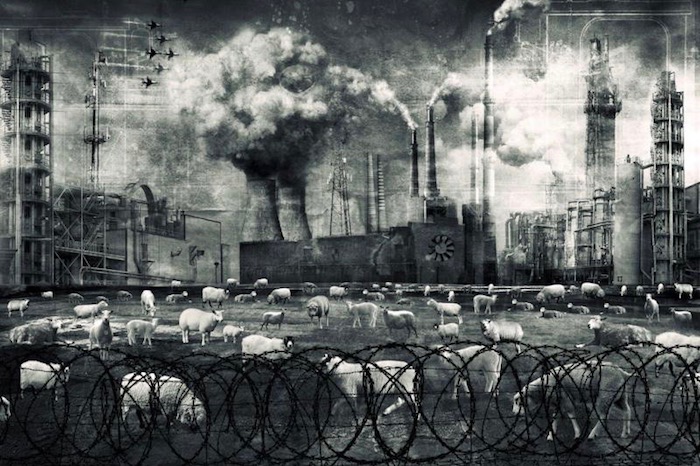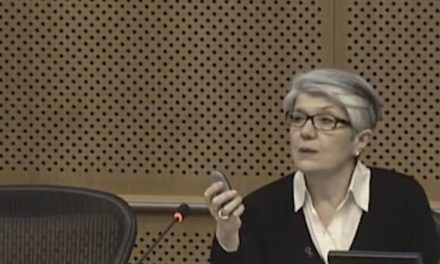Costas Douzinas is Syriza MP for the Pireus A’ constituency and Chair of the Standing Committee of Defence and Foreign Affairs. He is Professor of Law and Philosophy, Director of the Birkbeck Institute for the Humanities, University of London and member of the Greek Commission on Human Rights. Douzinas was the founder of the Birkbeck School of Law, the Birkbeck Institute for the Humanities and the School of Law of the University of Cyprus. He is the editor of the journal Law and Critique and managing editor of Birkbeck Law Press.
Professor Douzinas has written on legal and political philosophy, human rights, aesthetics and literature. His many books, translated in twelve languages, include (2013) Philosophy and Resistance in the Crisis: Greece and the Future of Europe, (2007) Human Rights and Empire: The Political Philosophy of Cosmopolitanism, (2005) Critical Jurisprudence: The Political Philosophy of Justice (with Adam Gearey), (2000) The End of Human Rights: Critical Legal Through at the Fin-de-Siecle, (1998) Law and the Emotions: Prolegomeana for a Psychoanalytic Approach to Legal Study, (1995) Justice Miscarried: Aesthetics and the Law, (1991) Postmodern Jurisprudence, (1986) Between Utopia and Apologetics: Constitutionalism and Critical Theory. His latest book and the first he wrote while being an MP, is entitled (2017) Syriza in Power. He is frequent contributor to the Guardian and openDemocracy and writes a fortnightly column entitled Philosophical and Political Current in the Athens daily Efimerida ton Syntakton.
Interviewed by Greek News Agenda* and commenting on the German electoral result, professor Douzinas points out that the rise of the far right in the recent German elections is an expression of the crisis of the traditional political establishments globally and that it will drive Germany to push towards further securitization of the EU’ s immigration policy. He does not expect significant changes as far as the Greek debt issue is concerned, foreseeing that austerity will remain the gist of German policy. He also underlines that Europe is going through a phase of decline as democracy and social justice subside, while capitalism gallops and Nationalism reemerges. Brexit, he comments, adds another piece to Europe’s existential crisis puzzle, but offers at the same time an opportunity for Europe to reconsider its priorities. In this context, he argues, it is the duty of the Left to try to cure the democratic deficit in the EU by proposing institutional reforms and democratic changes that could unite the European peoples.
How is the German electoral result expected to affect the EU, Greece, and more specifically, the discussion of Greek debt?
For many European leaders, Emmanuel Macron’s victory in France seemed to indicate a significant change as far as the rise of the far right was concerned. In an atmosphere of complacency, they saw the German elections as a window of opportunity that would allow EU authorities to focus on starting the process of the most ambitious negotiations of eurozone reforms since the Maastricht treaty. The result of the German elections, however proved how delusional this complacency was. The elections were another expression of the crisis the traditional political establishments across the world is going through, with the rise of the far right being—at least for now—its most characteristic expression. And the end of this rise does not seem to be very close. My prediction—and I truly hope I am mistaken—is that we will witness similar developments in the upcoming elections in Austria, Denmark, etc. Yet, the case of Germany is probably the most alarming. The reason is quite obvious. As historians and other public commentators have shown, ever since the ‘Historikerstreit’, postwar collective memory in Germany was shaped by the traumatic experience of WWII, and a collective guilt which usually remained silent. Politically, this guilt was expressed by recognizing the historic responsibility of Germany to stand against fascism and any form of aggressive nationalism.
The rise of AfD in a way has turned this upside down. Its leaders have said that Germans should not feel guilty of their past, that they should be proud of it. But here we need to be careful. Contrary to conventional wisdom, the rise of the AfD did not come out of the blue; nor is it just the sudden comeback of oppressed beliefs and emotions. It is in fact the end result of a politics of ‘talking’ about the past that became a sort of official policy after German unification. This politics of ‘negative nationalism’ was expressed by repeatedly speaking about the guilt in public, by condemning antisemitism, and of course the Holocaust. This ‘talking’ came through various means: official discourses, history courses, making of museums, exhibitions, films etc. So, talking about the elephant in the room (the Nazi past) was in fact promoted and facilitated by political power. What is new with the AfD is that it says unashamedly that it does not care about the elephant in the room.
So, to come back to your question, it seems to me that Merkel and the coalition she will form (even if the Greens are a part of it) will continue her previous policies, but with a significant right-wing touch in immigration policy. Merkel will be looking towards the AfD, even if publicly condemning it, because this is where her voters turned to. This will further the securitization of EU immigration/refugee policy. And this is not good news for Greece and, more generally, Europe. As far as the Greek debt issue is concerned, I do not think that we will see significant changes (at least coming straight from the German side). The liberals of the FDP are in favour of supporting financially Greece, so Grexit is off the table (especially now that Schaeuble is leaving the Finance ministry). But that also means that austerity will remain the gist of German policy, even if the FDP pushes for tax reductions. Yet, on this, we should also wait and see how the negotiations on the eurozone reforms will unfold and the extent to which these talks will take austerity and the current economic orthodoxy in the EU for granted.

As you have mentioned in an interview, the EU will not be the same next year. Would you like to elaborate?
We had the German elections with the results and the possible changes in German policy we talked about. Think of what comes next. Elections in Denmark, Austria, where I think the turn towards the far-right will continue and of course Brexit. I think it does not take a wise man to say that the EU will not be the same next year. But I think the change goes beyond the EU, the institutions that we Europeans have made. Europe as an entity and an identity will not be the same next year. Let me bring Freud into the discussion. In his essay ‘Mourning and melancholy’ he argued that mourning is a reaction to losing beloved persons or ideals. From today’s perspective, what Freud is telling us is that what we have experienced here in Greece during these last years – the abandoned lives of the refugees and the EU coup against Greece—are connected.
In what ways are they connected? They are both symptoms of Europe’s decline. A decline that concludes a long historical process and stands as the climax of three historic cycles that saw Europe move from triumph to marginalization. The first cycle opened in the 15th century with the Renaissance, and the discoveries of the new world. During its course, Europe became the centre, head and capital of the world. It exported capital and political forms (the nation state) to other parts of the world, including its colonies; it informed the liberating movements in the Americas, in Asia, and in Africa; it provided in short, an intellectual geography. And the Mediterranean was in fact at the heart of this geography. For Hegel, it was the centre of global history, for Braudel the light of Europe, its workshop of trade and culture. Today this light is lost in Lampedusa. The Mediterranean has become a graveyard, a place where lives and dreams of a better life are lost. The light of Europe fades away. Where does this leave Europe? To use Dipesh Chakrabarty’s words, Europe has been provincialized, it has become a province of Asia, it is being led by its ex colonies.
The second cycle was the European civil war of the short twentieth century. What characterized this phase was, on the one hand, the European world wars, and on the other, the deadly competition between capitalism and communism. This phase ended with the defeats of Germany and of communism. But the dialectic of history transformed the triumph into self-destruction. The biggest loser was the welfare state, one of the major outcomes of the civil war and of the working-class movement. The other loser was the colonial world. Without ever thinking about the sustainability of states after liberation, the developing world was condemned to wars, underdevelopment, and migration.
The third cycle started in 1989. It was the cycle of the ‘new global order’ and the ‘end of history’. Neoliberalism as the higher stage of history. But dialectic took again its revenge. The triumph of capitalism and the destruction of its adversary made the elites audacious and led to the steady disconnection between capitalism and democracy. Their audacity did not just hurt, if not destroyed the welfare state but also the idea of Europe. In our own days, the ‘markets’ are more important than the people, elections are seen as unimportant details and social justice is being mocked as a relic of the past. Nationalism is back, the North blames the South for laziness, class differences are translated again into national tensions and conflicts. Fortress Europe builds walls and is responsible for making the mare nostrum into a graveyard of the unwanted who come from outside in order to ‘protect’ those privileged within. In the Mediterranean and in Brussels the third cycle is coming to an end. In March 1938 Freud wrote in his notebook ‘Finis Austriae’. I hate to be bleak, but if Europe does not change fast, then the ‘Finis Europae’ is closer than we think.
Brexit is an ongoing saga with many plot twists and no foreseeable ending for the time being. Nevertheless, what do you think its impact on European Integration has been so far?
Brexit clearly adds another piece to the EU’s great existential crisis. As to its impact, we are still watching in a way. Although I hate to see Britain go, I do think that Brexit presented and presents a kind of chance for Europe. For the time being, this chance is being highjacked by the security and defense hawks. When EU leaders speak about fuller integration, they do so when they discuss security issues, and defense strategies, such as a fully-fledged European defense union or the establishment of a European cybersecurity agency. In the best of their moments they talk about integration when they refer to the rule of law. But even there they are rather selective. One can only look at the ways in which governments in Poland or Hungary always manage to somehow get away with rights violations. What I am saying is that European integration will be enhanced, but the crucial question is what kind of integration this is going to be. An economic and political integration without a proper economic union, without shared policies and values on welfare and justice, fiscal transfers, and a banking union will only add insult to the already injured political body of Europe. The point is to stop the process of decline I already talked to you about. The worst thing that can happen will be to move towards a three-geared EU: one with Germany and other northern countries at its head, the post-communist states as satellites of the head and the Mediterranean countries as third-class participants.
This is why we need initiatives that will question how the debate on Europe is being formed, that will question the priorities posed by EU leaders. It is our job as professors and parliamentarians to facilitate such initiatives. A good place to start is of course the parliament – which for many years has remained either oblivious to such debates or, as my experience has taught me, rather inward looking when it comes to such issues. This could also run counter to what has been an international trend, the downgrading of the parliament. Indeed during the last 30-40 years the parliament’s role has lessened while the power, capacity and competencies of the executive have increased. This has to be addressed. The parliaments have to be reenergized. In my capacity as chairman of the Committee of national defense and foreign affairs, we are arranging a series of joint-meetings with the Committee of EU affairs dedicated on Brexit. The reason is something that many people do not realise. Brexit will greatly impact Greece, our students, employees, shipowners, property owners, businessmen, the tourism industry, etc. When the Brexit “divorce” is settled, Greece’s relations with Britain will be different. To understand, and analyze this process and resolve problems that will potentially arise, we need special knowledge; and it is important that the Parliament participates in this process as its role is to hold the state mechanism accountable but also to provide assistance so that there is full knowledge of what is happening.
What is the potential of the European Left in the EU setting currently being formed?
My personal opinion is that there is great potential, even if the circumstances are not ideal. Note for example what the Left is doing in Portugal, here in Greece, and even in Britain where Labour is hitting back. The same goes in other parts of the world. So, the question is what the Left is to do. The first thing, we leftists have to do is evade the dilemma ‘Yes or No to Europe’ and say ‘Yes to another kind of Europe’. In order to do that, we need to learn from our mistakes and start all over. What mistakes you may ask? The first was our failure to create a European people, a demos. We failed to create the consciousness that we belong to the same cultural, political and economic space. The second is related to what we euphemistically call democratic deficit, which is a mild way to talk about the total lack of any sort of democracy at the EU level; something which in fact neoliberal forces seek to constitutionalise. The word ‘referendum’ is an evil word in Brussels since whenever the European peoples have been called to vote in a referendum, they have rejected decisively the ‘European position’.
The delegitimization of the European plan has created an historic chance for greater deliberation that would put the emphasis on the deepening of democracy, on the recognition of cultural diversity and of indigeneity. The hegemonic social elites do not care about these things. The responsibility thus falls on the European left—with its institutional naïveté, its youth, its necessary ‘rudeness’—to propose institutional reforms and democratic changes that could unite the European peoples. Its major characteristic should be the re-politicisation of our societies, the direct participation of European citizens in the decision making at the local, national and European level. This would have to be combined with a new European contract for labour and the recognition of cultural diversity. If EU initiatives lead to a better way of life of European citizens, then the interest of the people to participate will be enhanced.
Are such initiatives possible in such a hostile environment? This is difficult to implement of course. It is necessary to form somehow a new constituent assembly of citizens, movements and parties that go beyond existing institutions. Without a radical change now, the future of Europe seems, as I already pointed out, bleak. But we do need to try, and we do need to do so right away. As a song used to say, ‘what better place than here? What better time than now?’.
Visit also Open Athens. Politics, Theory, Culture ed. by Costas Douzinas
* Interview by Florentia Kiortsi
Special thanks to Michalis Sotiropoulos for his significant contribution to making this interview possible.













